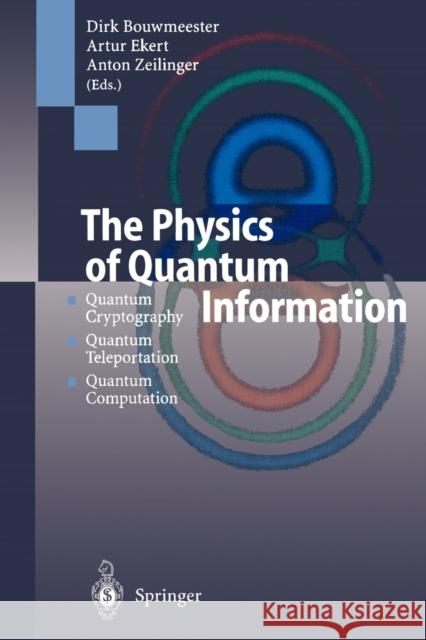The Physics of Quantum Information: Quantum Cryptography, Quantum Teleportation, Quantum Computation » książka
The Physics of Quantum Information: Quantum Cryptography, Quantum Teleportation, Quantum Computation
ISBN-13: 9783642086076 / Angielski / Miękka / 2010 / 315 str.
Information is stored, transmitted and processed by physical means. Thus, the concept of information and computation can be formulated in the con text of a physical theory and the study of information requires ultimately experimentation. This sentence, innocuous at first glance, leads to non-trivial consequences. Following Moore's law, about every 18 months microprocessors double their speed and, it seems, the only way to make them significantly faster is to make them smaller. In the not too distant future they will reach the point where the logic gates are so small that they consist of only a few atoms each. Then quantum-mechanical effects will become important. Thus, if computers are to continue to become faster (and therefore smaller), new, quantum technology must replace or supplement what we have now. But it turns out that such technology can offer much more than smaller and faster microprocessors. Several recent theoretical results have shown that quantum effects may be harnessed to provide qualitatively new modes of communication and computation, in some cases much more powerful than their classical counterparts. This new quantum technology is being born in many laboratories. The last two decades have witnessed experiments in which single quantum particles of different kinds were controlled and manipulated with an unprecedented preci sion. Many "gedanken" experiments, so famous in the early days of quantum mechanics, have been carried out."











